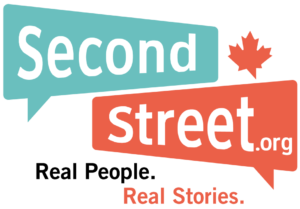VANCOUVER SUN: Kris Sims opinion column
It has been well-reported that thousands of Canadian patients have suffered — not just from COVID-19, but from having unrelated surgeries cancelled because of the pandemic.
In fact, the CovidSurg Collaborative research team recently estimated that 400,000 surgical procedures had been postponed due to COVID-19. Everything from cancer treatments to hip surgeries and visits with specialists have been postponed. This ultimately means the already long waiting lists in Canada will grow even longer.
Canadians should take note of two things about the situation:
First, there are some pretty tragic stories behind the 400,000 figure. It is inhuman to shrug our shoulders at it and consider making even more patients suffer on even longer waiting lists.
Consider John Bright’s experience.
Bright once ran a thriving property maintenance company in Squamish — he actually had more work than he could handle and was looking to expand.
Then, in early 2019, John got injured working on a customer’s attic. After nine months of doctors’ appointments he learned he had an extremely painful form of osteoarthritis and would need a double hip replacement. To make matters worse, John is allergic to conventional painkillers and anti-inflammatory medication, so he is suffering in pain.
“It feels like knives stabbing me in the hips all the time,” he said in an interview. “I’m stuck at home and can’t do anything.”
John’s initial consultation with a surgeon was scheduled for April 2, more than a year after he was first injured. He prepared a budget to keep afloat.
Then COVID-19 hit.
“They called me on April 1 to cancel,” he said. “It was like a bad April Fool’s joke.”
Ineligible for CERB or EI, John was left without an income, and finally shuttered his business for good in June. The local rec centre pool was also closed — the one place where he could exercise without extreme discomfort.
“Hip replacements take four to six months to recover from,” John said. “And the wait for the surgery could take years now.”
The second point to consider is that Canada’s waiting lists were unnecessarily long before COVID hit.
The Commonwealth Fund’s exhaustive 2017 international comparison of health care systems in 11 countries found Canadians were most likely to wait long periods to see a specialist and to receive surgery.
A recent SecondStreet.org report shows that Norway, Australia, the United Kingdom, New Zealand and the Netherlands all ranked higher in the Commonwealth Fund study, yet they spend less as a country on health care than what we do.
What allows these countries to have better outcomes with less money? One answer is clear: choice.
Unlike Canada, the other five countries give patients a choice — use the public health-care system or pay out of pocket at a private facility. Ultimately, this helps reduce stress on the public system.
For example, patients in the United Kingdom are, like Canadians, covered by a publicly funded health-care system, the National Health Service, or NHS. Unlike Canadians, however, people in the U.K. can buy private health insurance coverage for elective treatments at private facilities — something 11 per cent of British citizens choose to do. Those who pay for private health coverage help take pressure off the public system.
Australia has universal health care like Canada and the U.K., but it uses a carrot-and-stick approach to encourage its citizens to buy private insurance. Higher-income Australians, families earning more than C$160,000 per year, pay a small tax if they choose not to buy private insurance, while most people, those earning less than C$253,000, are subsidized with tax rebates if they choose to purchase private insurance.
Many other nations provide better health-care services than what patients receive in Canada. For the sake of patients like John, isn’t it time for our elected officials to pursue health-care reform?
Kris Sims is a contributor for SecondStreet.org and is the B.C. Director for the Canadian Taxpayers Federation.
This column was published by the Vancouver Sun on September 3, 2020.
You can help us continue to research and tell stories about this issue by making a donation or sharing this content with your friends. Be sure to sign up for our updates too!


